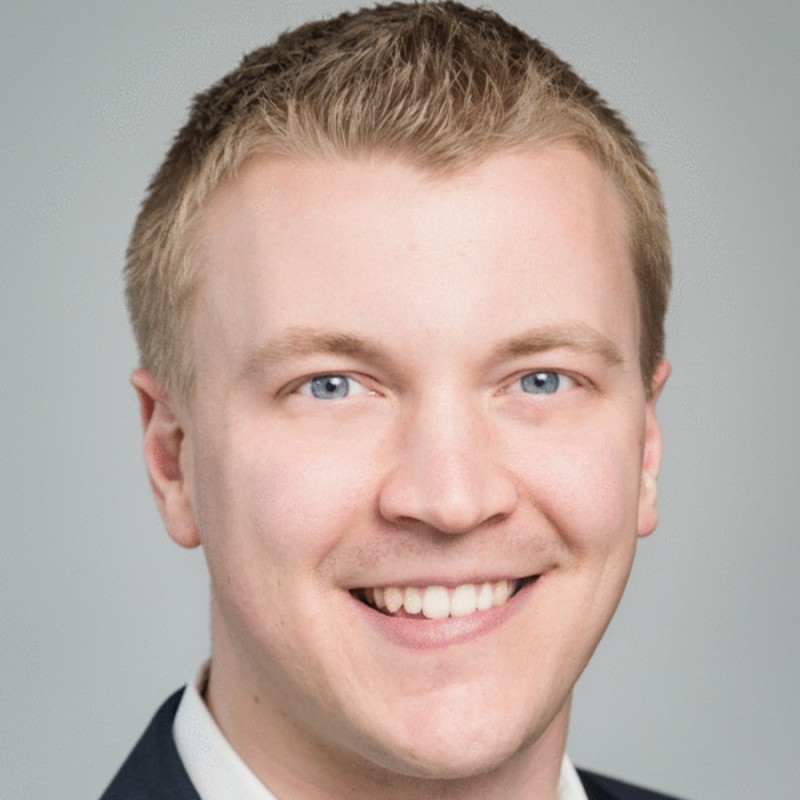AlphaEdge Recognition - Next Gen in Alpha Generation
This year, Allocator Intel will be recognizing leaders in the allocator community, acknowledged by their peers, for exceptional leadership in key areas of portfolio construction in the Alpha Edge Recognition Awards.
Michael Kakenmaster, Director of Investments at Loyola University Chicago, is recognized as a Rising Star for Alpha Generation for his work at the $1 billion endowment. Since joining Loyola two years ago, he has helped restructured the private markets program by increasing the allocation target to 20% of the total portfolio and cultivating new relationships within venture capital. He has also helped revamp the endowment’s hedge fund portfolio, incorporating more diversified strategies into the manager mix.
A graduate of Indiana University, where he attended the Kelley School of Business, Michael entered the investment management industry as an analyst in the Chicago area — first at consultant Capital Forensics then at financial services firm Mesirow Financial for five years within their fund of hedge funds platform. Before joining Loyola, he spent six years at Schwartz Capital Group, a family office located in the Windy City, starting out as a Senior Investment Analyst before rising to Director of Fund Investments.
The following is edited for length and clarity.
 Let’s start with you sharing an overview of your portfolio and what it looks like today
Let’s start with you sharing an overview of your portfolio and what it looks like today
It’s a pretty standard endowment-style portfolio: Currently, part of our portfolio is global public equities (45% of the book), followed by 20% in hedge funds (what we call “marketable alternatives”), and then private equity, which includes venture, growth, and buyout strategies.
We took an initiative to increase the target on private equity to 20%, almost doubling the allocation from when he joined. We are also more focused on primary commitments and looking at smaller funds operating in the lower middle market.
What have been the most significant changes?
It’s probably the increase in private equity exposure – not just target allocation, but also the mix. We’re somewhat of a newer team at Loyola, so the legacy private markets exposure came through a mix of secondary funds, fund of funds, and some large GPs, and it was also a smaller part of the overall portfolio. For me, the changes to our private equity and venture capital portfolio have been the biggest so far.
Additionally, the way we’re invested in public managers has evolved, putting a greater emphasis on active over passive and being more nuanced about regional exposure. Last, within hedge funds, we have become more tactical in how we invest in managers. Aside from a small allocation to ETFs, all the endowment capital is invested with external managers.
What factors influence you the most?
Team, strategy, and execution. We like to see a consistent strategy executed by the same team year-over-year with success. Alignment with the GP matters a lot, too.
In terms of asset managers, what do you look for in terms of strategic partnerships?
I think transparency is a big one. We are not always going to be the biggest investor in managers’ funds, and the way they act, share information, and respond to our requests is really important, both to the due diligence process and when we’re investors.
We typically can find out a good amount of information about the GPs through our network, and when the GP isn’t forthcoming, that’s not a great sign. Commitment to keeping an open dialogue, making sure we’re fully informed on changes, meaningful or not, from a partnership perspective, means a lot and being able to chat, maybe not with the key partners, but junior professionals is important for us.
Let’s talk about your investment opportunities and what you see for the next 12 to 18 months as to what you see for opportunities
We are always interested in what’s going on in the distressed credit space (both corporate and real estate). We’re trying to educate ourselves on what’s out there and return potential, especially in the lower end of the market.
Certainly, there’s going to be some fallout from rising interest rates within private markets, so we are trying to find some unique venture capital managers to build a relationship with over the coming years.
What are some of the challenges that you anticipate in the next year?
On the private side, I think distributions are going to slow down. Most of our managers are in the investment period of their fund, so capital call activity should be consistent, if not faster. We’re in a unique spot as we are growing into a larger allocation, so we have a bit of a buffer and expect more capital calls than distributions for now, but I think that’ll be an interesting dynamic.
What have been the most significant changes over the last few years?
The way we interact with our investment committee has changed a lot since I joined Loyola. We have been able to streamline some of the investment decision making process and utilize our quarterly meetings to have more strategic discussions about investment policy and investment opportunities.
We have a lot of smart, experienced investors on our investment committee so being able to leverage their knowledge and insights has been a benefit to our investment team. All the credit goes to our CIO, Katie Wyatt, for moving things in this direction.
What do you do in your spare time?
We have two little kids at home (They’ll be 1 and 3 next month!), so they keep us busy most of the time – going on walks, playing at the park, reading books, play dates with friends, and cousins, etcetera. When I can, I’ll try to squeeze a round of golf into my schedule, too.
For more content of Investor Week, visit the group here.
To discuss the content of this article or gain access to like content, log in or request membership here.
